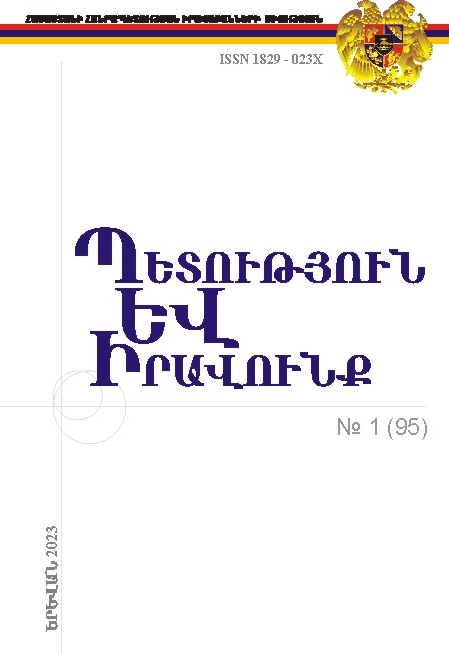BURDEN OF PROOF IN THE CRIMINAL PROCEDURE: CLASSICAL AND MODERN APPROACHES
DOI:
https://doi.org/10.46991/S&L/2023.95.095Keywords:
burden of proof, obligation of proof, proof in criminal proceedings, presumption of innocence, civil law, common law, standards of proof, distribution of burden of proofAbstract
The article is devoted to the consideration of two approaches (classical and modern) of the study of burden of proof in criminal proceedings. The problem of the ratio of "burden of proof" and "obligation of proof" is considered. In the doctrine of common law, the presumption of innocence accompanies or is even an element of proof, establishing the rules of the standards of guilt. Currently, doctrinal approaches to the burden of proof have been slightly changed. The author highlights the importance of studying the burden of proof in the context of the specific theory of proof in the context of the national legal system. The burden of proof in the Russian criminal process exists as a procedural rule (procedural initiative) to actively collect, verify and evaluate evidence in the broad sense and as the burden of proving the accusation and refuting the arguments brought in defense of the suspect or the accused (in the narrow sense).
All these arguments allow us to state that: 1) there is no burden of proof lying on the side of the defense in the Russian criminal process as a process of continental law system, moreover, when the distribution of the burden of proof is violated, the courts of higher instances cancel the previous decisions of lower courts; 2) there are no concrete legal sanctions for the lack of proof or failure to fulfill the obligation of proof and, therefore, it is possible not to contradict "obligation of proof" and "burden of proof". At the same time, it is quite promising to study the burden of proof from the point of view of its content and distribution.
Downloads
Published
Issue
Section
License
Copyright (c) 2023 State and Law

This work is licensed under a Creative Commons Attribution-NonCommercial 4.0 International License.

